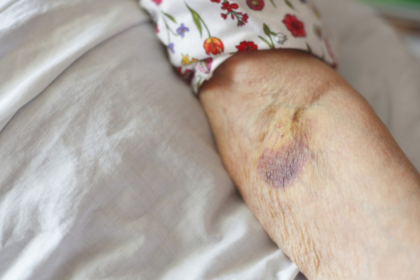
As someone ages, they become physically and mentally weaker, and this makes them easier to take advantage of. As many as five million elders are abused annually, and elder abuse lawyers in Ontario believe that only 1 in 24 cases are reported to authorities.
According to the National Council on Aging, 10% of Americans over the age of 60 have suffered from at least one of the 7 forms of elder abuse listed below. Understanding these 7 kinds of elder abuse is essential to knowing that your loved one is being taken care of. It’s important to be able to recognize all 7 forms of abuse so that you can seek legal justice with a family law attorney in Ontario if need be.
Physical Abuse
Nursing home staff can become agitated with residents and physical abuse them to get them to comply. Right now, many nursing homes are understaffed, which leads to staff burnout and more cases of abuse.
When visiting your loved one, you should look out for the following:
- Bruises
- Pressure marks
- Broken bones
- Abrasions
- Burns
Emotional Abuse
Emotional abuse is also a problem in nursing homes with cruel or uncaring staff. Emotional abuse often comes in the form of shouts, threats, humiliation and outright bullying. An older person who is being abused may also be isolated from their friends, family, or kept away from their favorite activities.
The signs of emotional elder abuse are:
- Unexplained withdrawal from normal activities
- Sudden change in alertness
- Depression
- Strained or tense relationships
- Frequent arguments between the caregiver and older adult
Sexual Abuse
People will take advantage of elders’ defenselessness by initiating sexual contact without their consent. Such contact can include physical sex acts, but activities such as showing an elderly person pornographic material, forcing the person to watch sex acts, or forcing the elder to undress are also considered sexual elder abuse.
Financial Exploitation
This kind of abuse can be committed by caregivers who scammers through the internet or phone. Family members can also commit this kind of abuse. This includes misuse an elder’s finances and forging their signature on checks.
Keep an eye out for the following:
- Sudden changes in bank account balances
- Unexplained or odd purchases
- Unpaid bills
- New bank accounts in their name
Healthcare Fraud and Abuse
When an older person needs medical attention, they can be taken advantage of by unethical doctors, nurses, and hospital personnel. The older person may be double charged or overcharged for services, or over or undermedicated.
Elder Neglect
While it doesn’t always come to mind, neglect is also a form of abuse. Caretakers who do not fulfill their obligations actually account for half of all reported elder abuse cases. This can be intentional or unintentional. Signs that an older person is neglected include:
- Poor hygiene
- Cluttered living space
- Bedsores
- Unexplained weight loss



